29 Aug2019
By John Henry
This article originally appeared on the WUSA 9 website and is reprinted with permission.
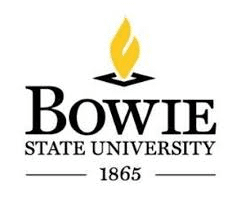
If you look inside many of America’s classrooms, you’ll notice someone is missing: black male teachers.
According to the latest data from the U.S. Department of Education, only 2% of the country’s teaching workforce are black males.
The phenomenon has not been lost on educators like Bowie State University professor Julius Davis. He recently undertook an effort to increase the number of black male teachers that can be found in DMV classrooms.
The University System of Maryland awarded Davis a $44,000 grant to operate a center at Bowie State that specializes in the research and mentorship of black male students and teachers.
22 Aug2019
By Susan Blystone
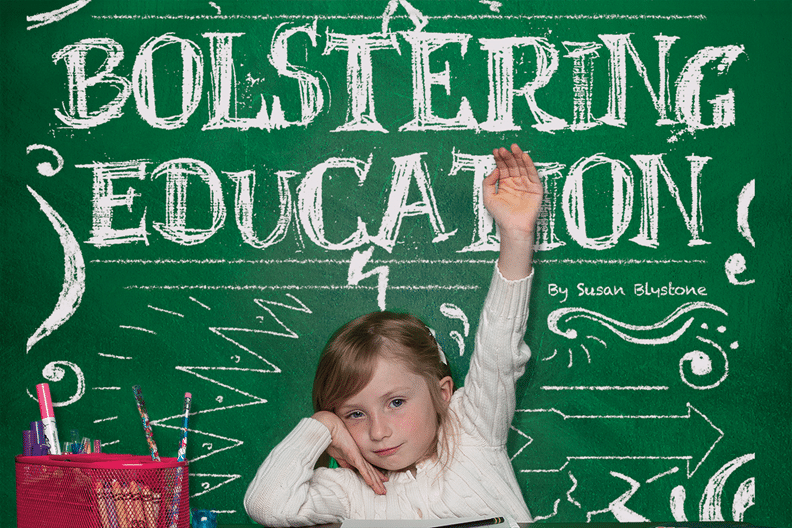
This article and photo is reprinted with permission from Illinois State, August 2019 issue.
Media alerts announce another school shooting with lives lost. Another extended teachers’ strike is called to protest inadequate pay. Another round of standardized test results show that American students are falling behind. Another cut made in funds earmarked for public education cripples school districts struggling to keep pace with changing curricula and technology.
ISU College of Education Dean James Wolfinger will tell you the regular recurrence of such reports sparks mounting negative sentiments toward the teaching profession as a whole, which results in one more equally troubling headline: America is facing a critical shortage of teachers.
“The problem is serious, it is real, and it is not overblown by the media,”
21 Aug2019
By Jacksonville State University
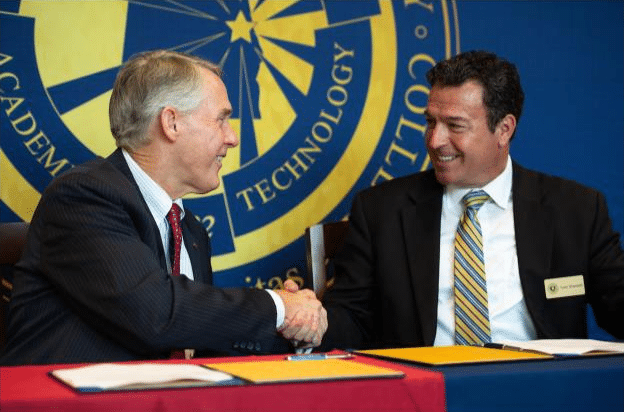
JSU and Southern Union State Community College are joining forces to provide a smoother route to an early childhood or elementary education degree through the newly established Teacher Prep program.
Teacher Prep creates opportunities for Southern Union students to seamlessly enter JSU’s School of Education through concurrent enrollment. Students are able to earn college credit simultaneously at the community college and university level, placing students on a quicker and more cost-effective pathway to receiving an associate’s degree and a
16 Aug2019
By Kate Robertson
This article originally appeared in on the University of Tulsa Appalachian website and is reprinted with permission.
Oklahoma is facing a troubling teacher shortage. To ensure public school students have instructors in classrooms this fall, the state has issued 3,000 emergency teacher certifications. The Oklahoma Association of Colleges for Teacher Education (OACTE) analyzed data to uncover the ramifications of an increased number of emergency certificates, and on Monday, Aug. 12, The University of Tulsa hosted the Oklahoma Teacher Pipeline Summit to share their findings and discuss possible solutions to the crisis.
14 Aug2019
By Jacqueline Rodriguez
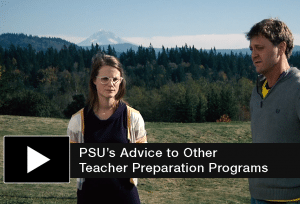 As the student population has diversified so has our understanding of the general education classroom, specifically who we serve in an inclusive setting. Our students with special education services are learning the majority of their grade level curriculum in general education classrooms. This paradigm shift requires effective collaboration between service providers and teachers as well as a deep understanding and application of differentiation to meet the needs of all students.
As the student population has diversified so has our understanding of the general education classroom, specifically who we serve in an inclusive setting. Our students with special education services are learning the majority of their grade level curriculum in general education classrooms. This paradigm shift requires effective collaboration between service providers and teachers as well as a deep understanding and application of differentiation to meet the needs of all students.
For years, the two fields of general education and special education have been siloed. Persistence and partnership is how
09 Aug2019
By Jacqueline Rodriguez
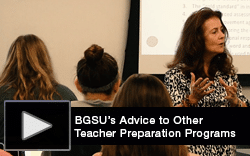 The key to developing the Bowling Green State University (BGSU) dual licensure program is reaching out to the local area to ensure the program is built with the local needs at the forefront. “The local data is how the university can drive change,” recalls a district leader. Faculty also believe collaboration with the district is central to their mission and their success with candidates. Making connections with the field office and the supervising teachers ensured faculty could relate what candidates were seeing in the field to what they were learning in their coursework.
The key to developing the Bowling Green State University (BGSU) dual licensure program is reaching out to the local area to ensure the program is built with the local needs at the forefront. “The local data is how the university can drive change,” recalls a district leader. Faculty also believe collaboration with the district is central to their mission and their success with candidates. Making connections with the field office and the supervising teachers ensured faculty could relate what candidates were seeing in the field to what they were learning in their coursework.
University systems must also be taken into consideration, especially when working across colleges and across departments. Two questions drove the BGSU program leadership as they developed their dual licensure program: What is best for our students in this program? An what is best for this program? One significant concern was finding strong clinical placements for each teacher candidate. The success of a program with hundreds of teacher candidates rested with strong clinical partnerships.
Finally, serving all students that walk into the classroom was the priority when developing the dual licensure program at BGSU. “This wasn’t an experiment, this is the way BGSU does business,” reflected a faculty member. It was a choice to move away from single licensure that, over time, changes the makeup of the district teaching population, which is why district leaders were involved at every step in the program development.
To learn more, watch the Advice to Others video highlighting BGSU’s Models of Inclusive Clinical Teacher Preparation, part of AACTE’s Research-to-Practice Spotlight Series.
01 Aug2019
By Jacqueline Rodriguez
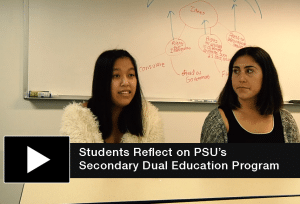 A number of students in Portland State University’s (PSU) Secondary Dual Education Program (SPED) recently reflected on advice they were given before entering the graduate program. “I always want more education than less,” one teacher candidate was advised by a mentor in the field of medicine. The candidate now looks back on her experience in the program with appreciation. “I was ready. I had the resources. I had been in the classroom for two years; it felt natural. I didn’t have the same level of trepidation as some of my first year friends.”
A number of students in Portland State University’s (PSU) Secondary Dual Education Program (SPED) recently reflected on advice they were given before entering the graduate program. “I always want more education than less,” one teacher candidate was advised by a mentor in the field of medicine. The candidate now looks back on her experience in the program with appreciation. “I was ready. I had the resources. I had been in the classroom for two years; it felt natural. I didn’t have the same level of trepidation as some of my first year friends.”
The students who complete the PSU program graduate with a dual endorsement in a secondary education content area and special education. Another candidate reflected on the importance of serving every student in the classroom. His decision to pursue a two-year graduate program in secondary English and special education was an obvious one; it ensured he would be prepared to meet the needs of all students with a range of abilities.
The benefit of being profession-ready is not only valued by the teacher candidates. High school students also note the tremendous advantage they have when a teacher who understands the unique needs of students with IEPs is leading the classroom. In particular, college access traditionally has been stymied for students with significant disabilities. However, one high school student reflected that she has a mentor in her teacher, someone who has guided her toward college-ready curriculum. Learning from their students is another area of mutual benefit expressed by the candidates. The necessity to meet the needs of each student in the classroom is universally acknowledged by candidates, students, and administrators.
To learn more, view the What’s in it for me? video highlighting PSU’s Secondary Dual Education program, part of AACTE’s Research-to-Practice Spotlight Series.
29 Jul2019
By Jerrica Thurman
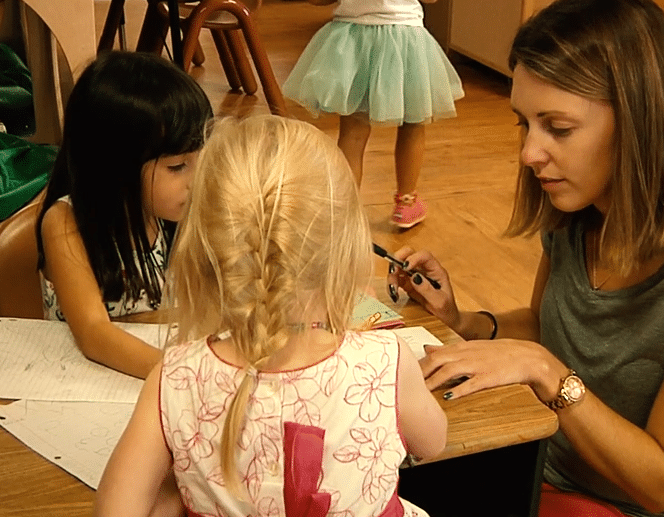 Developing and sustaining partnerships with local school districts are critical to the success of the Bowling Green State University (BGSU) Inclusive Early Childhood (IEC) program. Superintendents who work with BGSU assert that all parties need to understand the challenges each school district and university face and must be willing to bridge the gap between research and clinical practice together. BGSU’s teacher candidates are deployed for clinical practice in special education at local schools including in rural areas.
Developing and sustaining partnerships with local school districts are critical to the success of the Bowling Green State University (BGSU) Inclusive Early Childhood (IEC) program. Superintendents who work with BGSU assert that all parties need to understand the challenges each school district and university face and must be willing to bridge the gap between research and clinical practice together. BGSU’s teacher candidates are deployed for clinical practice in special education at local schools including in rural areas.
“One of the pieces that works really well for us is that all of the people working in the education department at the university are parents themselves of students in our district so there’s a vested interest,” said Francis Scruci, superintendent of Bowling Green City Schools. “I think there’s a mutual respect. We certainly respect what the university does and I think they respect what we’re trying to do at the K-12 level and we understand the challenges that both of us face. We are willing to bridge that gap and try to help each other become successful.”
BGSU’s overall objective is to prepare graduates of the IEC program to teach young children with and without disabilities in inclusive settings. The IEC program blends the best practices from early childhood education with early childhood special education. It addresses the knowledge, skills, and values necessary to meet the needs of each child. Graduates of the program are prepared to provide differentiated, evidence-based instruction to young children from birth through grade 3.
To learn more, watch the Developing and Sustaining Partnerships video highlighting BGSU’s Models of Inclusive Clinical Teacher Preparation, part of AACTE’s Research-to-Practice Spotlight Series.
19 Jul2019
By Katrina Norfleet
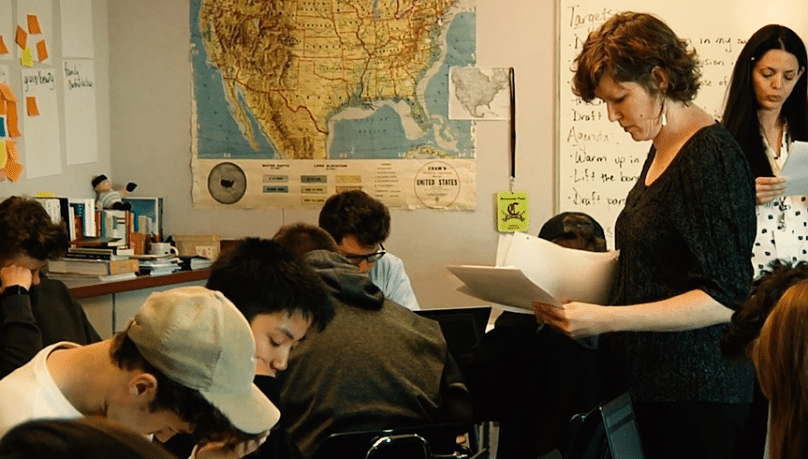
One of the key components of Portland State University’s (PSU) Secondary Dual Education Program is its success in developing and sustaining partnerships with local school districts.
Marvin Lynn, dean of the Graduate School of Education at PSU, shares how the program prepares secondary education teacher candidates to bring content knowledge and “the knowledge that special education teachers have to bare about the learning process and about how to work with these unique populations” to local schools.
Educators like Ana Capac, a special education teacher at Evergreen High School, specifically ask for student teachers from the PSU program because of the mindsets and approaches they bring to the classroom and community. “It is really important that I’m supporting both the student teachers I’m working with on how they are developing this mindset of inclusion, supporting all students, and working within the school to support their colleagues as well,” says Capac.
Andrew Gilford, assistant principal at Clackamas High School, emphasizes this culture shift to more collegial relationships where the PSU teacher candidates and the classroom teachers “speak the same language” and can work together to serve students with disabilities and improve learning outcomes. “Coming from this kind of program and this kind of background, you are immediately an advocate,” adds Rob Parness, special education teacher and former academic coach at Tigard High School.
In discussing the culture shift, Will Parnell, curriculum and instruction department chair at PSU, emphasizes that the program was built based on relationships with the community. “There were local districts that were saying ‘we want special ed teachers that can support students in general ed classrooms’ but they found out that teacher prep programs were not focused on that,” says Susan Bert, assistant professor of practice, special education at PSU. “So there was a need.”
To learn more, view the Developing and Sustaining Partnerships video featuring PSU’s Secondary Dual Education program.
09 Jul2019
By Brandon R.T. Frost
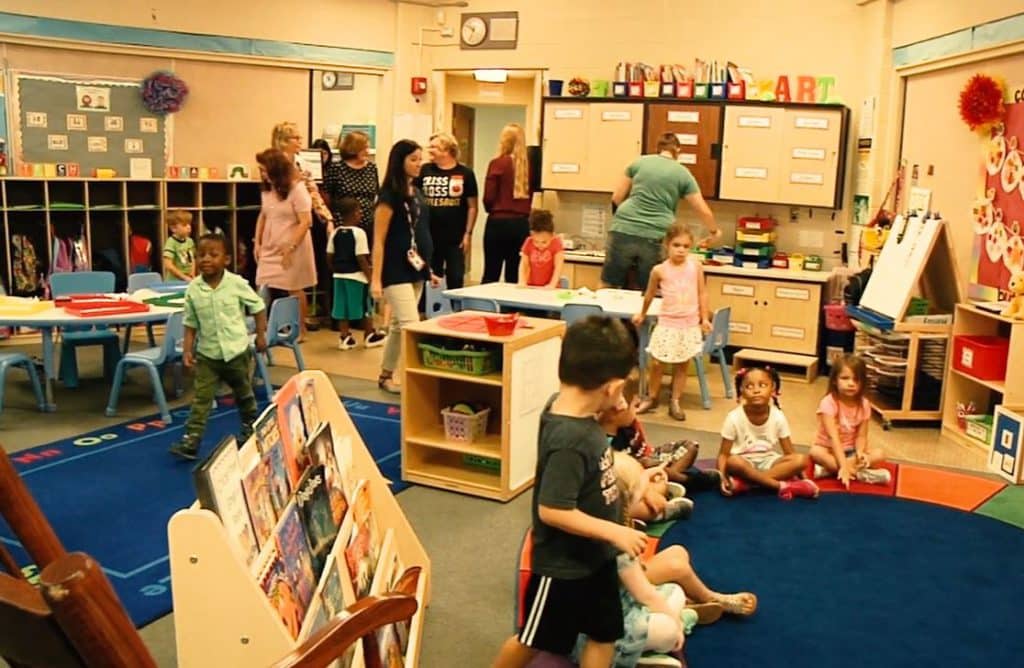
The Dual Licensure component of the Inclusive Early Childhood Program at Bowling Green State University (BGSU) supports teachers by improving their teaching craft and ensuring that teachers’ instructions remain relevant to their students.
Brenda Gift, the director of student services at Educational Services Center of Lake Erie West, applauds the program for providing high quality teachers who are eager to work in integrated classrooms. She further asserts that school districts are more likely to hire BGSU teacher candidates because of their dual licensure. Not only does the dual licensure indicate that teacher candidates can support all students, but it makes them marketable and competitive for hiring.
Some of the mentor teachers in partner school districts who support BGSU teacher candidates are BGSU alumni. Despite the responsibilities of being a classroom teacher, they value mentoring BGSU teacher candidates because they know how important it is to have an effective and supportive host teacher. The early childhood students benefit from teacher candidates because it provides a smaller teacher-to-student ratio. Teacher candidates agree that having proper training for inclusive education benefits them and the students they teach, assuring they are ready to instruct all learners once they enter the classroom.
To learn more, watch the What’s In It for Me? video highlighting BGSU’s Models of Inclusive Clinical Teacher Preparation, part of AACTE’s Research-to-Practice Spotlight Series.
28 Jun2019
By Jerrica Thurman
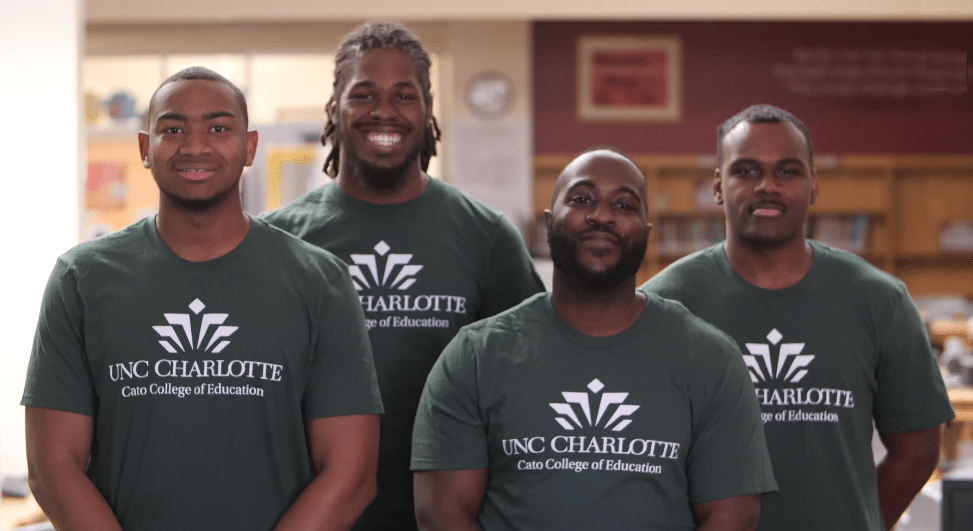
AACTE member institution Cato College of Education at the University of North Carolina at Charlotte (UNCC) works to create effective solutions to the shortage of Black male teachers. Thomas Fisher, supervisor of student teaching in the Office of School and Community Partnerships, recruited four of his former students to help implement a program to engage and recruit Black male students into the teaching profession. The team visits schools and shares their story to inspire a new generation of educators in the most underrepresented demographic in teaching.
“There’s only 2% Black male teachers in the United States,” says Timothy Wells, social studies teacher at Ridge Road Middle School, who is featured in the “What’s Your Impact?” video. “Studies show that your success increases if you have a Black male teacher or a male teacher in general from an early age.” The video spotlights Black male graduates of UNC’s Cato College of Education as they share why they pursued a teaching career. It also includes Edwin Campbell, American history teacher at Vance High School; Devin Murphy, math teacher at Myers Park High School; and Dwayne Simmons, English teacher and dean of students at Quail Hollow Middle School. Please take a few minutes to watch the video above to hear the dynamic stories of these educators.
28 Jun2019
By Brandon R.T. Frost
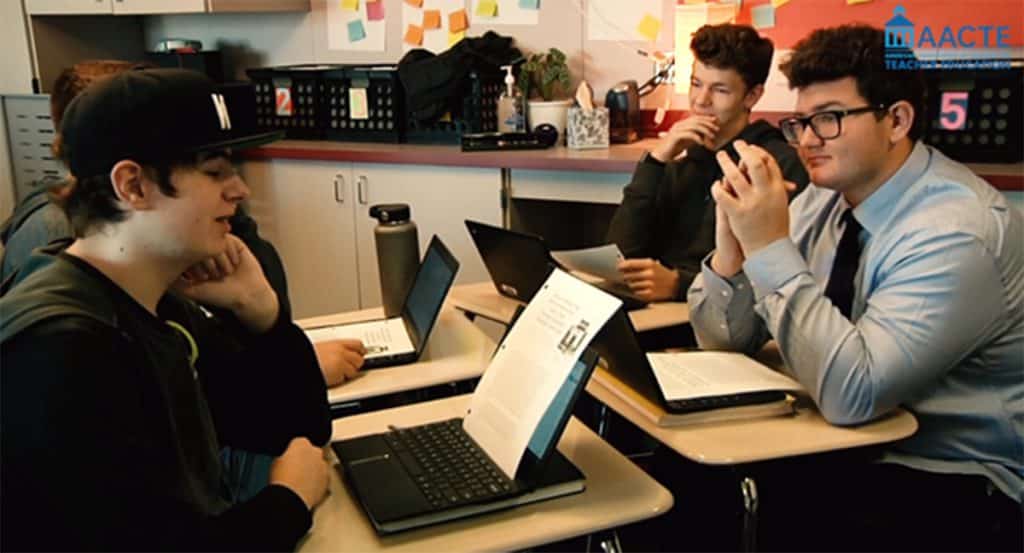
Empowering teachers to feel adequately prepared on their first day of teaching is the goal of Portland State University’s (PSU) Secondary Dual Education Program (SPED). As classrooms becomes more diverse, teachers need skills to address all students’ needs and make every student feel they are included in a positive community.
Andrew Gilford, assistant principal at Clackamas High School, believes the training and preparation his teachers receive from SPED enables them to meet the needs of all their students in the classroom. The program requires all teacher candidates to have two years of practice before entering the classroom. In particular, during the two years candidates engage in a combination of observation and student teaching. Michael Bowersox agrees that the two-year program allowed him to combine his coursework at PSU with classroom practice so that he is ready to be an effective teacher on the very first day as a teacher of record. Teacher candidates are matched with master teachers, learn to plan together, and develop the teaching skills to positively affect student achievement for all.
The highlight of PSU’s Dual Degree program is the training it provides its teacher candidates to be inclusive educators. “A characteristic of a successful classroom is the ability for everyone to feel included and have the opportunity to be included,” says Joseph Cornett, a graduate of PSU and a social studies teacher at David Douglas High School. He explains that the program taught him how to set up his students for success, work collaboratively with teachers, and navigate the school system and curriculum.
To learn more, view the video highlighting PSU’s Secondary Dual Education program, part of AACTE’s Research-to-Practice Spotlight Series.
21 Jun2019
By Brandon R.T. Frost
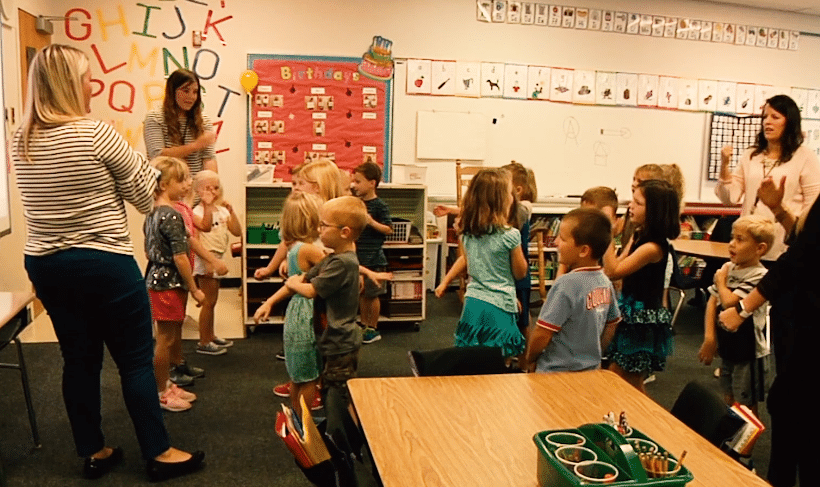
The Early Childhood Inclusive Education Program at Bowling Green State University (BGSU) prepares teachers to educate the youngest of school-age children with a solid foundation for learning. “This program is an example of innovation as it relates to making sure our students at the earliest stage have opportunities to develop and be successful in their lives,” says Rodney Rogers, president of Bowling Green State University. As a public university, BGSU sees itself as serving the public good and views the College of Education & Human Development as a place where all teacher candidates are prepared to meet the needs of their students. Teachers who graduate from the program are ready to enter the classrooms with the skills to accommodate all students.
21 Jun2019
By Action News Jax
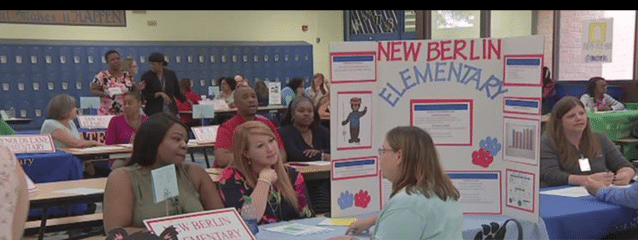
This article and photo originally appeared on Action News Jax and are reprinted with permission.
The Duval County School District is working hard to recruit between 200-250 teachers before the start of this school year.
That number is down since Action News Jax first told you last week the school district needed to fill more than 400 holes.
Action News Jax reporter Courtney Cole shows us a program that’s helping to recruit, admit and support local scholars going into education.
“This is a really big opportunity for us, knowing that we have a really big role to fill,” said Jarred Jackson.
Jackson is just one of the nine teens starting his journey to fill the really big role of an educator.
“Just knowing that we can and that we’re able to—is very exciting for us,” Jackson told Action News Jax Courtney Cole.
Right now teachers are in high demand across the state—and in Duval County.
10 Jun2019
By University of Tennessee News
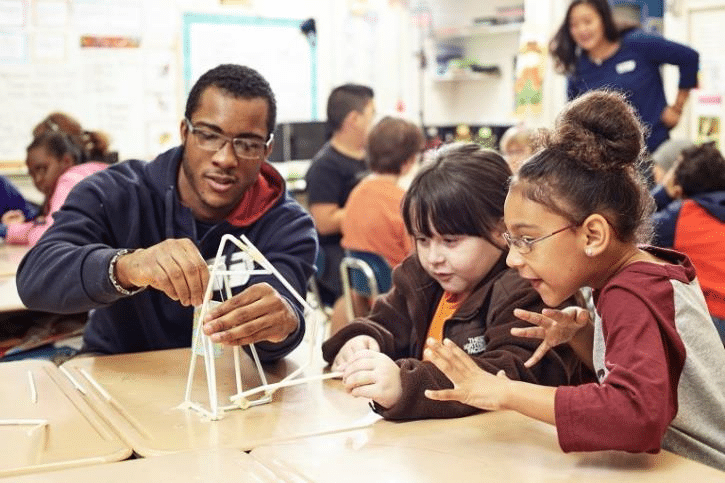
This article and photo originally appeared on the University of Tennessee News website and are reprinted with permission.
A new program aimed at increasing the number of licensed teachers from diverse backgrounds will launch this summer in the College of Education, Health, and Human Sciences.
The program, Increasing Teacher Equity to Address Community High Needs (I-TEACH), is funded by a Tennessee Higher Education Commission grant recently awarded to the college to support diversity in education and to fill critical teaching shortages across the state. The two-year program supports 12 eligible teacher candidates for 33 hours of coursework and clinical practice. Candidates who complete the program will graduate with a master’s degree in teacher education.










 As the student population has diversified so has our understanding of the general education classroom, specifically who we serve in an inclusive setting. Our students with special education services are learning the majority of their grade level curriculum in general education classrooms. This paradigm shift requires effective collaboration between service providers and teachers as well as a deep understanding and application of differentiation to meet the needs of all students.
As the student population has diversified so has our understanding of the general education classroom, specifically who we serve in an inclusive setting. Our students with special education services are learning the majority of their grade level curriculum in general education classrooms. This paradigm shift requires effective collaboration between service providers and teachers as well as a deep understanding and application of differentiation to meet the needs of all students. The key to developing the Bowling Green State University (BGSU) dual licensure program is reaching out to the local area to ensure the program is built with the local needs at the forefront. “The local data is how the university can drive change,” recalls a district leader. Faculty also believe collaboration with the district is central to their mission and their success with candidates. Making connections with the field office and the supervising teachers ensured faculty could relate what candidates were seeing in the field to what they were learning in their coursework.
The key to developing the Bowling Green State University (BGSU) dual licensure program is reaching out to the local area to ensure the program is built with the local needs at the forefront. “The local data is how the university can drive change,” recalls a district leader. Faculty also believe collaboration with the district is central to their mission and their success with candidates. Making connections with the field office and the supervising teachers ensured faculty could relate what candidates were seeing in the field to what they were learning in their coursework.







